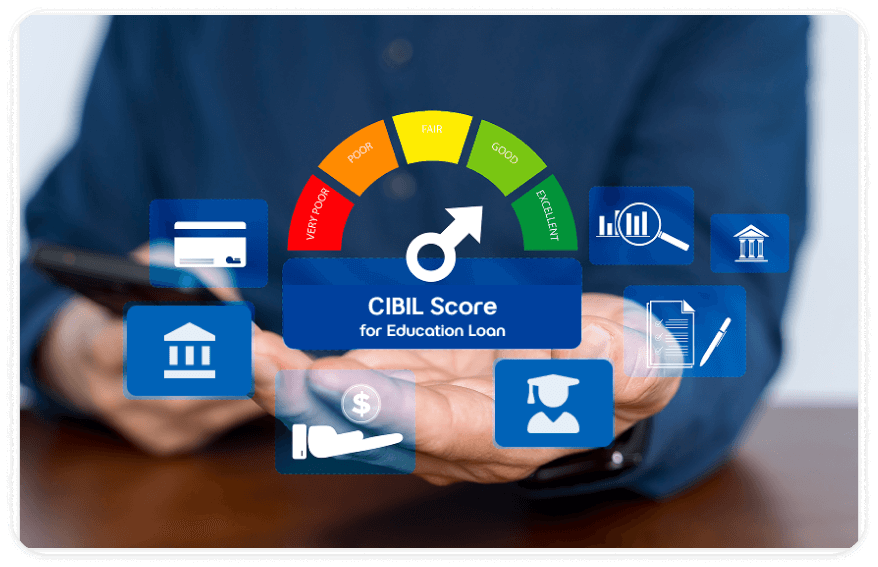In a country where education is seen as a ladder to success, the soaring cost of quality education continues to keep that ladder just out of reach for many young Indians. There’s a way to climb up that ladder with an education loan. It helps you achieve your dreams while also giving you the flexibility to pay EMIs after you complete your education.
One of the most crucial factors in securing an education loan is your CIBIL score. But what exactly is this score, and how can you ensure it works in your favor when applying for a loan?
In this guide, we’ll break it all down for you: what a CIBIL score is, why it matters for education loans, what the minimum CIBIL score for an education loan usually is, and most importantly, how you can improve it to boost your chances of approval.
Banks usually prefer a CIBIL score of about 750 and higher, but that’s not a strict rule. If you don’t have the minimum CIBIL score for education loan, banks may:
A CIBIL score is calculated by the CIBIL algorithm using the Credit Information Report (CIR) and six months of financial data, considering 258 different variables, each assigned a specific weightage. The four main factors that determine the CIBIL score are repayment history, number of loans, credit limit, and credit borrowing frequency.
Here’s a CIBIL score table for your better understanding:
Now that you understand how your three-digit credit score can impact your education loan application, let’s focus on improving your CIBIL score specifically for education loans.
You don’t have to worry if your or your co-applicant’s score isn’t where it should be yet. There’s a possibility to improve your CIBIL score for education loan. Improving your credit score takes time, but you can achieve it by consistently paying on time, lowering credit card balances, and checking your report for errors.
Here are 7 foolproof ways you can improve your CIBIL score over time:
Always pay your loan EMIs on time because delayed or missed payments on loans, credit cards, or EMIs reflect poorly on your credit report. You can set reminders or automate payments to ensure you’re always on time.
If you or your co-applicant has credit cards, try not to use more than 30 – 40% of the credit limit. If your credit utilization ratio is below 30%, it means that you are managing your credit well. Maxing out cards frequently suggests credit dependency.
Every loan application triggers a hard inquiry on your credit report. Applying for too many loans or credit cards in a short period can signal desperation to lenders and negatively impact your credit score.
The length of your credit history matters. You might think it’s best to close the long-standing credit cards, but you’re so wrong! It helps you to be perceived as having a long-term credit history and helps improve the average credit age. Hence, improving the credit score.
Sometimes, errors like incorrect account details or fraudulent activity can pull down your score. Get a free credit report once a year and report if there’s a problem. A small credit inquiry also helps improve the credit score slightly.
Completely avoid loan settlements and partial payments, as they negatively impact your credit report and significantly damage the credit score. Always aim to repay in full or renegotiate the terms if needed.
If you don’t have any credit history, consider taking a small personal loan or secured credit card to build your score gradually before applying for an education loan.
Improving your credit score doesn’t happen overnight; it requires consistent and responsible effort. On average, you may start seeing improvements within 3 to 6 months, depending on the actions you take.
Improving your CIBIL score is a smart move but we understand that students don’t always have time to figure it all out. That’s where QCK Loans comes in.
Your CIBIL score plays a key role in getting your education loan approved. Even if it’s not perfect, with the right guidance and a few smart steps, you can improve it over time. And if you need help, QCK Loans is here to make things easier.




